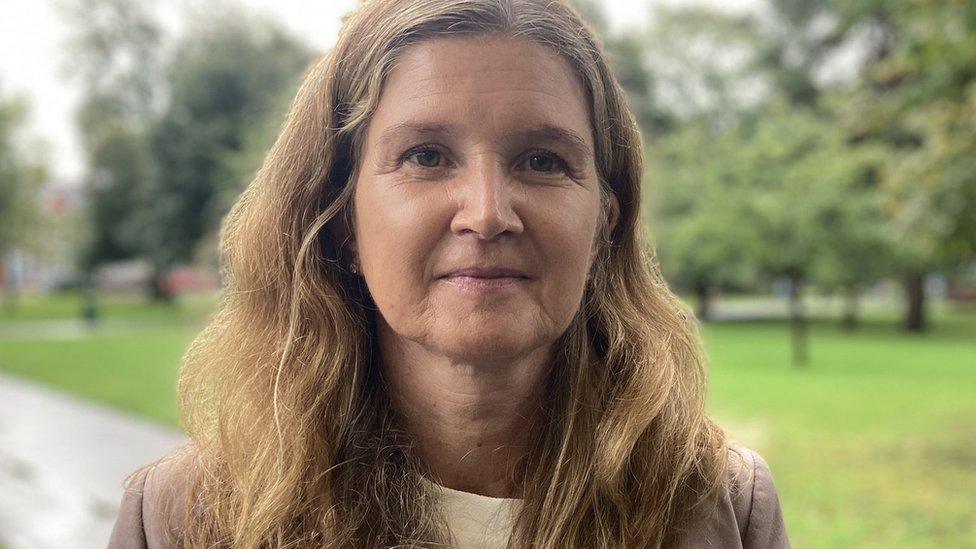Sexual misconduct in NHS hospitals being ignored, nurses claim
- Published
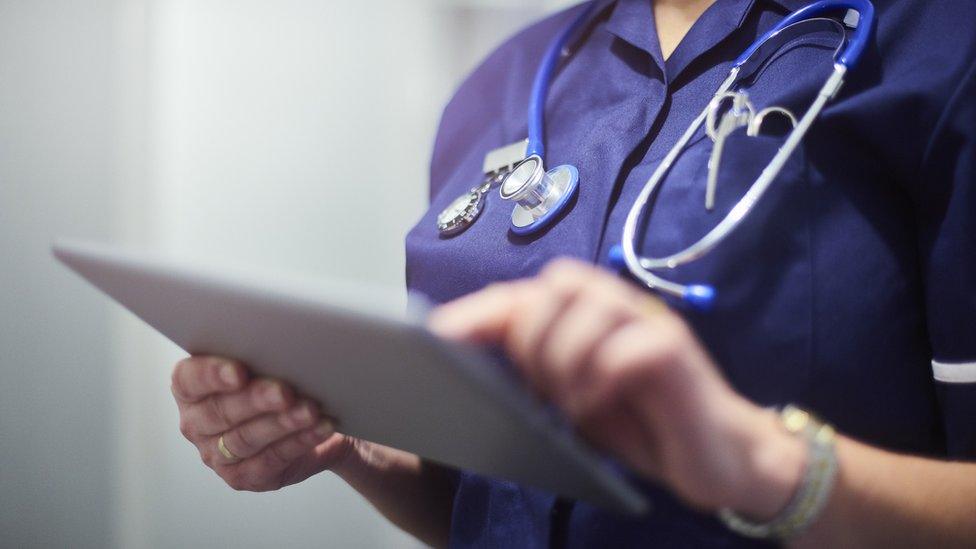
Sexual assault and rape reporting systems are failing in Welsh NHS hospitals, nurses say.
Current and former nurses have recalled their breasts being grabbed, hands put up dresses and bottoms slapped at work.
One said the number of prosecutions in Wales for these crimes had "virtually decriminalised" abuse at work.
The NHS Confederation for Wales said it took protection of patients and staff very seriously.
The Welsh government said harassment and sexual violence was abhorrent and had "no place in our NHS".
Megan - not her real name - worked as an NHS nurse for 35 years before recently leaving for a job in the private sector.
She said some male patients found sexual assault "a laugh" and would grab and grope staff members, adding: "As young females we felt absolutely violated."
Megan said she was punched in the face by a patient on a ward and advised by her GP to report the assault.
But when she spoke to her manager, she was "advised not to do anything".
"It was implied if I did, then I may not progress in that hospital," she said.
"I was young and afraid of senior managers, so I didn't take it any further."
She said it was not uncommon for senior male staff members to prey on student nurses and, while reporting systems were in place, there was an attitude that nothing would be done.
In freedom of information requests to the four Welsh police forces, the Women's Rights Network discovered there had been an alleged 152 sexual assaults and 26 rapes on hospital grounds between January 2019 and October 2022.
There were four convictions as a result of these allegations, although two forces were unable to provide convictions data.
'I was so humiliated'
Retired NHS nurse Cerys - not her real name - started her career in the 1980s and said the battles fought by women in the profession when she was younger had not gone away.
"I feel it's [my] duty to speak up," she said.
She recalled being assaulted while introducing herself to a new department in the hospital.
"The nurse in charge, who I hadn't met, came in and slapped me on the bottom and introduced himself," she said.
"Being new, I was so humiliated.
"I became aware that that was how I would be treated - it was setting the tone. No one thought it was dreadfully shocking."
Cerys said it was not only staff, but also patients, being assaulted.
"I remember three women who confided in me, told me they had been sexually abused in the hospital," she said.
"I also knew there were colleagues who were not just accused of sexual assault but found guilty, and dismissed from work."
However, she said at the time she did not feel able to report the stories she was told.
Cathy Larkman, a retired South Wales Police officer and now Wales' lead for the Women's Rights Network, said all four forces admitted their data was incomplete.
She said only one force - North Wales Police - recorded the gender of the victims, which was 80% female and 20% male.
The group is calling for better data gathering to include gender, location of incident and whether the perpetrator or victim was a staff member or a member of the public.
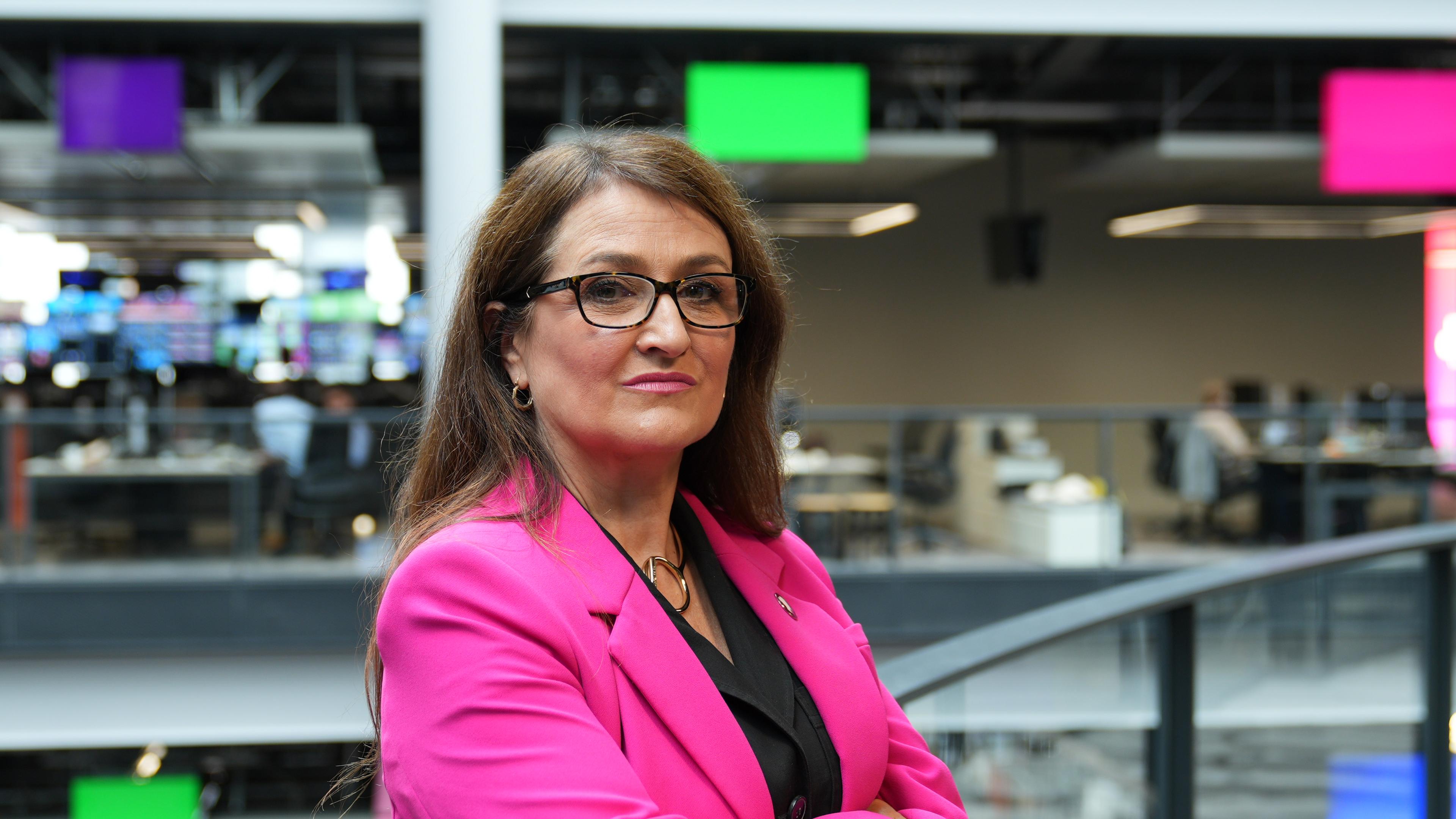
Cathy Larkman of the Women's Rights Networks says better data collecting is needed by police forces
Ms Larkman said she believed the police forces were not taking the issue seriously.
She said the group had written to the four chief constables in August, but received no replies.
"This is a time when nationally the police are emphasising that they are listening to women and have a high focus on violence against women, so I don't think it's unreasonable to expect an urgent response that they will look at their recording measures," she said.
South Wales Police said all sexual offence reports were recorded. It said it had increased its resources in this area and piloted a new operation "to make rape investigations more thorough and effective to achieve the best possible outcomes for victims".
Dyfed-Powys Police and Gwent Police echoed a National Police Chiefs' Council statement which said all reports of sexual assault and rape were taken "incredibly seriously".
"Our record of achieving a criminal justice outcome for victims of sexual offences is strong," it said.
"We continually review the data collected for all areas of crime, including reports of rape and sexual assault, to ensure that there is greater opportunity to detect and prevent such offences."
North Wales Police said it took all reports "extremely seriously".
The force said it recorded all reported incidents but its data did not "provide granular detail in relation to the precise location of such offences", so a review was taking place.
'They were laughed at'
Dr Becky Cox, a GP and co-founder of the Surviving in Scrubs campaign group, said she had experienced sexist comments, harassment and sexual assault since attending medical school.
Ms Cox, who trained in Cardiff and has a particular professional interest in women's health and inclusion, said there was no "decent or appropriate" system for reporting assaults, or any system at all, in many hospitals.
"Many people who experience this tell us they don't know where to turn," she said.
"We've had cases where a person has tried to raise a case with their supervisor and they were laughed at. That was somebody who was trying to report an attempted rape."
She agreed the lack of clear data was an issue.
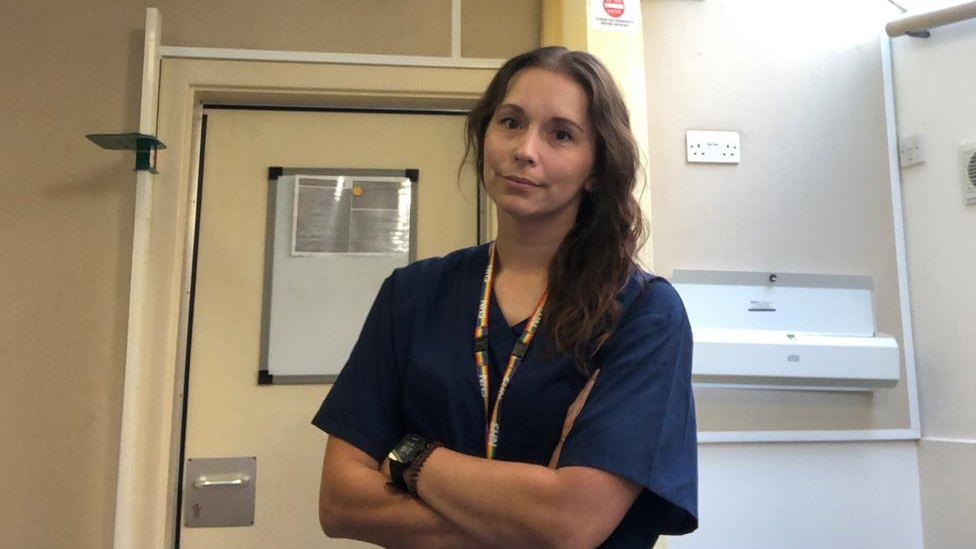
Dr Becky Cox says staff don't know where to turn as there isn't an appropriate reporting system for sexual assault at work
Dr Rowena Christmas, director of the Royal College of General Practitioners (RCGP) said raising concerns has "significant impact" on junior members of staff who rotate around hospital departments and rely on references.
''Everybody seems to have some experience of this,'' she said, adding that cultural issues stop people from speaking out.
"If you raise a concern then you're over sensitive or you can't take a joke.
"We are losing these critical people in our workforce who have worked so hard to get into medical school.
"It's got to stop, it's not acceptable.''
Darren Hughes, director of the Welsh NHS Confederation, said NHS Wales took "the protection of service users, patients and staff from any form of sexual misconduct, assault, harassment and abuse in any setting, very seriously".
"Health boards, trusts and other NHS Wales organisations are committed to working together to make improvements in workplace safety and culture, implement best practice, and cultivate an inclusive environment for everyone, where people are confident to challenge poor behaviour and speak out," he said.
"Staff who may have concerns around attitudes and behaviours in the NHS are encouraged to raise concerns with their manager or anonymously through the feedback and support processes in place in their organisation."
For more on this story, watch Wales Live on BBC iPlayer.
If you are affected by any of the issues in this article you can find details of organisations that can help via the BBC Action Line.
- Published4 August 2023
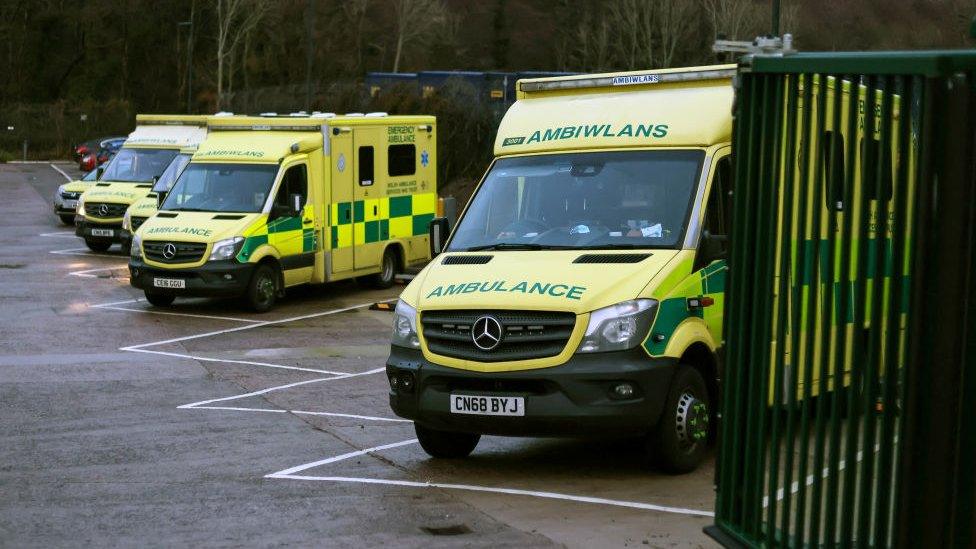
- Published14 September 2023
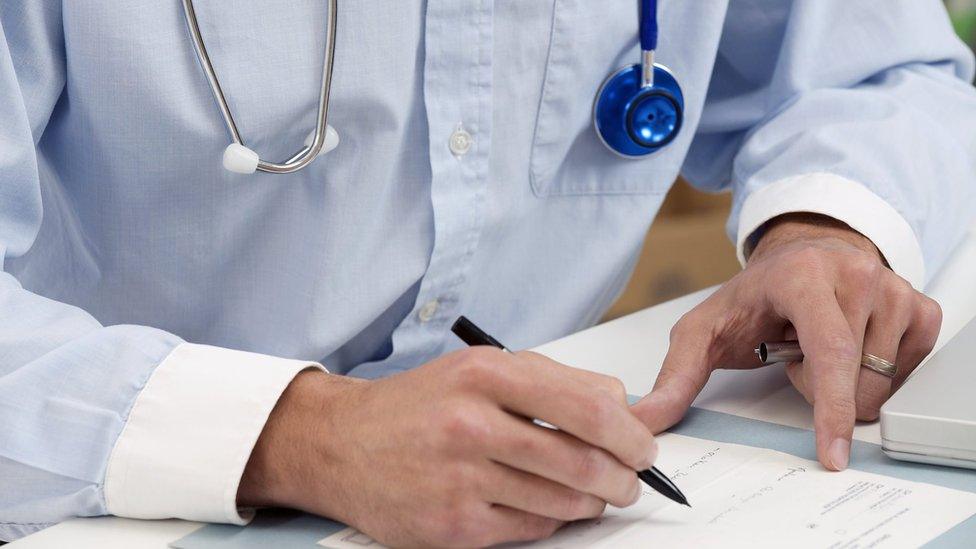
- Published18 September 2023
